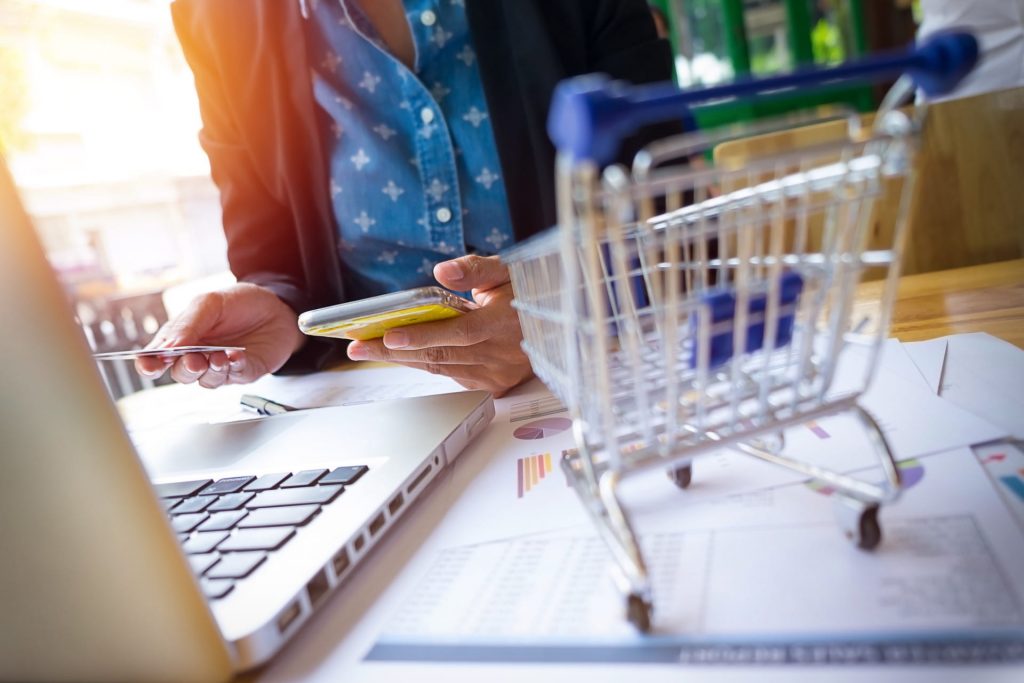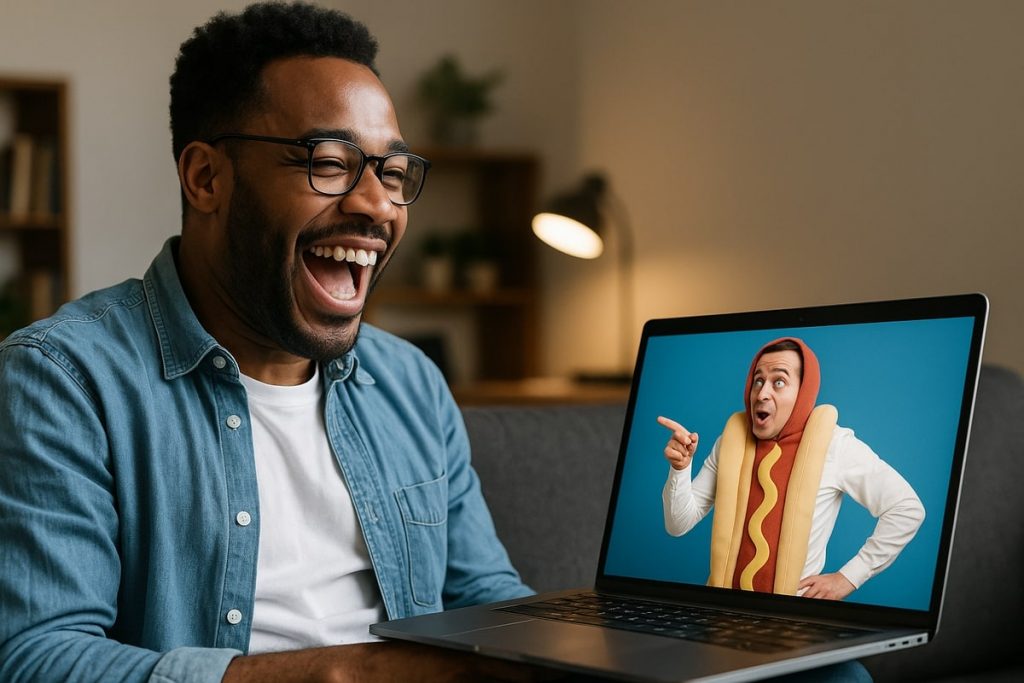The New Year usually means excitement, new opportunity, and discovering a new sense of drive and motivation.
For marketers, though, a new year can also come with an entirely new sense of dread.
Every January 1st, we see the beginning of marketing trends and strategies change.
Sometimes, there are even entirely new platforms to acquaint ourselves with (looking at you, TikTok).
While everyone else is ringing in the New Year, we marketers are biting our fingernails in a dark corner somewhere, worrying about what the latest trends will be and how we can keep up.
Ok, so maybe it’s not that severe.
But, it’s definitely essential to get to know the predictions for a new year so you don’t get lost in the strategies that were #so2019.
That’s where we come in.
We’re focusing on Facebook for this two-part trend prediction guide because they helpfully publish a Facebook Insights Report every year.
Another reason to focus on Facebook?
Because the platform continues to grow and dominate the advertising landscape.
It’s time to bring your Facebook advertising into the new decade (yeah, we said it).
We’re looking not only at what the Facebook trending topics are, but also how to apply these to your ad strategy.
Check out the Facebook trends set to define 2020, distilled directly from the platform’s insights guide.
In this first part of two, we’ll look at the rise of simplicity and sustainability.
We’ll explore what these Facebook trends mean, their impact, and how you can leverage them in your ads this year.
Facebook Trends Indicate A Return to Minimalism
Simple is better in 2020.
Already a Facebook trend today when it comes to ad design, bringing it back to basics is a concept that applies to an even greater extent in 2020.
We’re talking about simplicity not only in ad creative but in defining entire e-commerce concepts and how people are transforming their routines.
For example, the Facebook insights report highlights skincare routines in the Philippines.
In a country with a strong skincare tradition, routines often used to involve 10+ steps and multiple products.
Facebook’s trend prediction for 2020, though, is a pared-back routine focusing only on the basics.
This means opting for the essentials: cleanser, moisturizer, and UV protection.
Each of these products experienced over 3X more popularity YoY in the Philippines in terms of Facebook conversation about it, indicating the clear emergence of a Facebook 2020 trend.
But let’s see how the simplicity trend applies beyond just skincare.
Avoiding Choice Overload
In the past decade, customers have enjoyed increasingly more options when it comes to brands and products.
However, this also saw the emergence lately of choice overload.
This refers to the fact that too many choices make deciding on a purchase both more difficult and less satisfying.
The solution?
Build a brand around a few – if not just one – offering.
Additionally, make sure all assets (e.g. website, blog, etc.) are minimal in their design, too.
That’s because it’s been scientifically proven that minimal design appears to adults.
Casper is a great example of this trend.
When they first launched in 2014, the company only offered one model of mattress.
Within two years, they had earned over $100 million in sales.
From compelling copy to great customer experience, the Casper team did everything right to enhance the fact that their most groundbreaking feature was their lack of options.
And you can guess that their Facebook ads followed their simplicity ethos, too.
Brands like Allbirds, Harry’s, and Quip all quickly followed suit by carving out a niche and defining their brand through one quality product.
And what else do all of these minimalist brands have in common?
Minimalist Facebook ads, of course!
Everything from the product itself to the marketing strategy should reflect the focus on simplicity.
With people’s routines and philosophies highlighting the essentials, brands can speak to this through minimalist design, copy, and product offerings.
Sustainability Steps Into the Spotlight
Facebook trends today can often shape those of tomorrow.
Sustainability and a focus on going green is a great example of this.
In 2019, there was a shift in people’s awareness on a global scale of their environmental impact and the very real threats of climate change.
Not just a perception shift, eco-friendliness was visible in tangible ways, too, in 2019.
A few examples of this include:
- Amazon pledging to be carbon-neutral by 2040 and to buy 100,000 EVs
- The Norwegian Sovereign Fund, European Investment Bank, and other major firms pledging to stop investing in fossil fuels and coal
- Beyond Meat scoring the highest IPO of the year when it went public
As the Facebook trends guide for 2020 points out, sustainability is truly a global phenomenon.
For example, in Sweden, they are setting a new standard for sustainable fashion.
They even canceled fashion week in order to draw attention to the industry’s environmental impact.
But let’s look at that Beyond Meat/plant-based trend a bit further because it’s something that came to define the Facebook trending topics in both the U.S. and Germany.
Plant-Based is the New Beef
For many, German cuisine brings to mind meat-heavy dishes, like good ol’ knockwurst or schnitzel.
But, Facebook trends today have shown they’re transitioning towards veggies for both dietary and sustainability reasons.
They’ve even earned one of the top spots for the most vegetarians in the world.
Conversation on Facebook around vegetarianism and veggie burgers has increased 1.5X and 2.4X YoY, respectively.
This is reflected in the U.S., too, where “flexitarianism” has seen a huge rise.
Discussion around the impact of beef when it comes to methane emissions is a significant driver in this shift towards a plant-based diet that allows occasional indulgences of meat.
In fact, the topics of methane and plant-based diets each experienced over 1.1X YoY growth.
Also according to the Facebook insights guide, vegetarian-friendly protein replacements, like pea protein, were brought into the spotlight.
It’s clear that this is a trend that’s sticking around in 2020, too.
At the end of 2019, there were 18 major fast-food chains that offered plant-based versions of their menu items.
These include:
- White Castle (Impossible Slider)
- McDonald’s (P.L.T Burger)
- Burger King (Impossible Whopper)
- Dunkin’ (Beyond Sausage Breakfast Sandwich)
But, what does a shift to plant-based foods and a sustainable diet mean for Facebook advertisers?
Go Green
Whether you’re an e-commerce brand or a B2B SaaS company, you can launch your own green initiatives.
Highlighting these in your Facebook ads and/or organic social is a great way to spread the word and get customers on your side.
How Physical Brands Do This
E-commerce retailers are major culprits when it comes to dangerous environmental impact.
Packaging is one of the biggest reasons behind this.
Each year, over 165 billion packages are shipped in the U.S., using cardboard that equated to 1 billion trees.
With e-commerce rates expected to double in the next decade, many brands are pledging to combat this with more sustainable solutions, like Target’s reusable box initiative.
The more that eco-friendliness dominates the conversation, the more that this Facebook trend translates into sustainable initiatives, product launches, and messaging from e-commerce brands.
Here’s how a couple of those brands do it:
Watch brand Mondaine keep the message short and sweet by including their eco-friendly benefits as one in a list of other appealing features.
Others, like tentree, really push the message because it embodies what they built their brand on.
Tentree became a Facebook success story with their smart targeting of sustainability-focused users and compelling ad creative.
As a result, they experienced a 1.39X increase in purchase intent and a 30% increase in unaided brand awareness.
With each of these retailers, the lesson learned is to position the messaging in a way that feels authentic to the brand.
If you built your organization or a product line on an eco-friendly platform and its at the core of your ethos, then highlight that in a comprehensive way like tentree.
If sustainability is just a part of the greater whole when it comes to your brand’s value-props, then make it more subtle, like Mondaine.
Either way, it’s worth highlighting your eco-friendly efforts.
How Service-Oriented Brands Do This
If you offer a software or service, you can still apply an eco-friendly message to your social media.
The best way to do this is through organic posting.
For example, Autodesk posts links to their blog content, with captions that relate to both the topic and its relation to sustainability.
By continuing to post about green initiatives, Autodesk positions itself as a leader in sustainability among the tech industry,
Dell, too, is another great example of a tech leader taking advantage of the sustainability Facebook trend.
Like Autodesk, Dell regularly posts about their sustainability efforts on their Facebook page.
If your company gets involved with eco-friendly initiatives (which you most definitely should), use your social media channels to highlight these.
Not only will you position yourself as a green company, but also you can drive traffic to your blog or website, depending on where you direct the link in the post.
More Facebook Trends Coming Soon
A return to the basics and a surge in sustainability already drove Facebook trends to an extent today.
However, expect them to play an even greater role in the trends of tomorrow.
These two subjects round out part 1 of our Facebook insights guide for 2020.
Hopefully, you now have a greater awareness of what these trending topics are all about, plus an action plan for how to use them in your Facebook marketing strategy.
Don’t miss out on part 2, which will be the final installment of this guide.
We’ll be looking into three more Facebook trends that are shaping the future of both how people use the platform and – on a larger scale – perceptions and values across the globe.







